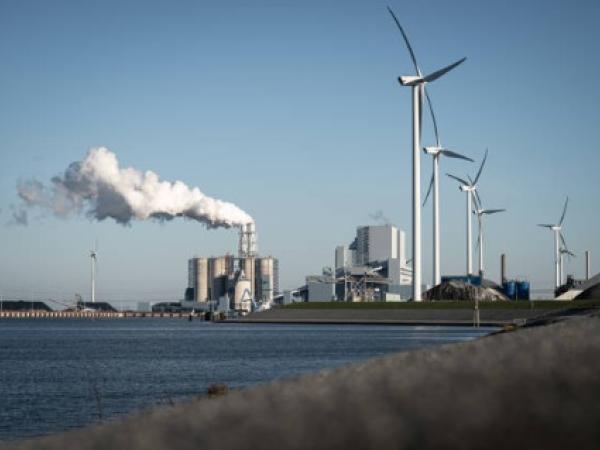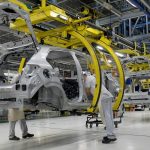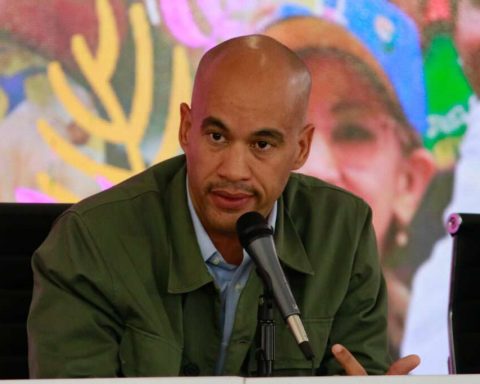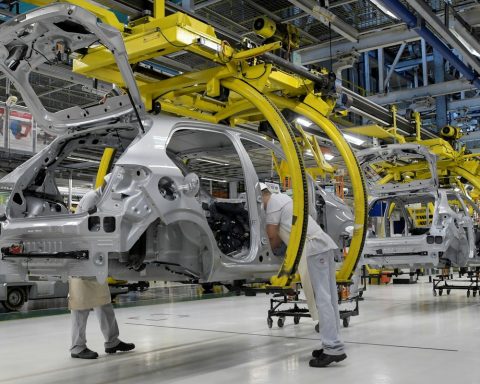The energy transition has become one of the priorities for economies around the world and, of course, the debate on what its roadmap should be like in the coming years often divides the different actors that have an impact in the process.
However, business leaders in the energy sector and some of the main unions agree on aspects of this path: it must be gradual, orderly and must serve to continue improving the quality of life of Colombians.
Eight of these leaders responded to the following four questions: How do you think Colombia’s energy transition should be? How do you think this process looks so far? What are the main challenges? How do you imagine the future of energy in the country?
Felipe Bayón Pardo, new president of Ecopetrol.
Courtesy Ecopetrol
Felipe Bayón, President of Ecopetrol
‘We are no longer an oil company, but an energy company’
1.- Colombia must continue to advance in an ambitious and orderly energy transition that takes advantage of the resources of the industry to strengthen decarbonization and low-emission businesses.
2.- Progress steadily and with high-impact projects. At Ecopetrol, we have been developing it for five years to increase competitiveness, diversify the matrix, accelerate decarbonization and deepen sustainability. We are no longer an oil and gas company, but an energy group with a prominent presence in almost the entire continent.
3.-The challenge is to continue developing the transition while maintaining energy security. We must guarantee that more than 10 million families continue to receive gas in their homes permanently.
4.- The transition is an irreversible process and will allow us to meet two important goals: to be water neutral by the year 2045 and to achieve zero net carbon emissions by the year 2050.

Carlos Orduz Aguilar.
Carlos Orduz Aguilar, Vice President of Power Generation, EPM
‘The country must achieve a diversified basket’
1.- It must be done gradually, considering the comparative advantages of each country and with the incorporation of new technologies, to the extent that they achieve cost-efficiency levels, in order to have an accessible rate.
2.- It has been carried out within a framework of public policy in development, regulation in process, openness to new technologies and the arrival of new actors, which is allowing for a harmonious framework, albeit with challenges.
3.- Achieve a diversified basket, in which ‘hydro’ generation continues to be the leader given the country’s strengths, as it is a clean, renewable source with affordable rates. And continue developing natural gas as a transition energy source. Public policy and regulation must continue to be developed.
4.- Natural gas as a fundamental actor in the energy transition, generation of electrical energy with hydro sources, greater wind and solar photovoltaic sources and development and application of new technologies.

private file
Ricardo Sierra, leader of Celsia
‘The energy transition is a goal already achieved’
1 and 2.- At Celsia we believe that the expression energy transition is going to wear out, because Colombia is already producing 80% of its energy from renewable sources; It is a goal already achieved. We should feel very proud of this and we are an example in the world. The goal for us is to reach 1 GW in four years (in farms, floors and roofs) and generate more than 5,000 jobs during the construction processes.
3.- There are still very big challenges in intermittency and reliability, so we need the support of conventional sources for a balanced and diversified matrix. Another challenge is that we need to make prior consultations respecting the communities, but with common sense. In La Guajira, we could lose the possibility of doing more projects.
4.- Colombia can be a ‘hub’ in renewables. We must target the foray into hydrogen, have proposals for storage because the sun stops shining and the wind stops blowing, and think about offshore projects.

Francisco José Lloreda Mera, president of the (ACP).
private file
Francisco José Lloreda, President of the ACP
‘A challenge is energy supply’
1.- The expectation is that by 2050, 50% of the country’s final energy consumption will be fuels derived from oil and gas; For this reason, we insist that the energy transition must consider three types of transitions: energy; the productive and regional financing; and macroeconomic and fiscal.
2.- Colombia in the definition of a public policy (Conpes 4075 of 2022), which establishes incentives and the necessary regulation to promote the energy transition, has achieved, for example, progress in having a carbon neutrality strategy and in the greater entry of electric and gas vehicles.
3.- Regarding energy supply and emissions reduction, the challenges are to continue the exploration and development of new gas resources; sustainable production (with a lower carbon footprint) of oil and gas; increased reliability and efficiency in the supply of liquid fuels; improvement in the quality of fuels, among others.
4.- A future in which energy self-sufficiency is guaranteed, with a diversified and efficient energy basket, with easy access to energy for all Colombians.

Luz Stella Murgas, president of Naturgas.
private file
Luz Stella Murgas, president of Naturgas
Natural gas is the key part of the process’
1.- The energy transition must be fair for social and economic well-being, and orderly in the use of all energy resources in a responsible and sustainable manner, and natural gas is the key to speeding it up.
2.- Our country has important advances such as auctions to award long-term contracts, the development of an attractive regulatory and fiscal framework, the inclusion of new energy sources and technologies in the matrix, in addition to the formulation and application of guidelines to strengthen institutions associated with the sector.
3.- Although Colombia has made progress in access to natural gas in homes and the transportation sector, there are multiple opportunities to continue improving. Every time firewood is replaced as fuel for cooking, it is possible to overcome a deprivation of energy poverty.
4.- The future of energy in Colombia is promising and we have the necessary raw material to advance in the decarbonization of the economy. Although it is not an easy task and requires the commitment of the entire sector.

Germán Corredor, director, Association of Renewable Energies Colombia (SER Colombia).
Germán Corredor, Director of SER Colombia
‘It is urgent to promote large projects’
1.- This is a global issue linked to climate change. If we do not mitigate it by reducing the emission of greenhouse gases, the objectives will not be achieved. And it is vital that the country contributes to that global goal.
2.- Colombia has already taken the first steps: progress has been made towards the development of renewable energies and some progress has been made in electric vehicles, but the road is still long. The large projects are not yet in operation and this is a pending but urgent issue.
3.- This implies a gradual change in the use of fossil fuels, for decarbonization and electrification with non-conventional sources of renewable energy and the expansion of the participation of these sources in the country’s electrical matrix.
4.Colombia has to make a transformation of its matrix. We must gradually decarbonize it, initially relying on natural gas to gradually reduce the use of fuels such as gasoline and diesel and increase the use of renewables. By 2050, I envision a mostly renewable matrix.

Alejandro Castañeda, President Andeg.
Courtesy
Alejandro Castañeda, CEO of Andeg
‘Competition improves the client’s situation’
1. The path that the country has traveled in terms of its transition to renewable technologies and energy transition has been adequate in terms of implementation, since our energy generation based on water production has been competitive and the correct decision was made not to grant subsidies. This has allowed renewables to enter in a competitive environment.
2. The process has been consistent with our economic reality, without speeding up too much and with caution in the future not to affect end users and damage our competitiveness.
3. Ensure that the projects that have commitments, and are in process or planning, are executed and come into operation, overcoming prior consultations, social conflict, and delays in the expansion of the energy transmission networks.
4. The electrical and energy matrix must be diversified, without demonizing any fuel, implementing improvements and developments in new technologies such as hydrogen, carbon capture and sequestration, the most efficient technologies in generation.

José Antonio Vargas Lleras, president of the Colombia World Energy Council.
José Antonio Vargas Lleras, Chairman of the Board of Directors, Enel Colombia
‘Energy transition is being orderly’
1. The energy transition must be designed with observance of the conditions of each country. It must take into account the available energy resources, the unsatisfied needs, the prices and payment capacity of citizens and companies, and the achievement of environmental objectives. The transition in Colombia has been planned in an ambitious but orderly manner.
2. The goals of changes in the energy matrix with the inclusion of renewable resources, the electrification of our economy, progress in energy efficiency and digitization of systems and access to energy resources by the population are advancing at a good pace .
3. Advance in the electrification of our economy more rapidly, which involves sectors such as industry and transportation. Electrification must be based on renewable resources, among others.
4. I imagine a country that has put the citizen at the center of its energy policy. That it has managed to balance the necessary energy security with the protection of its natural resources.
BRIEFCASE
















